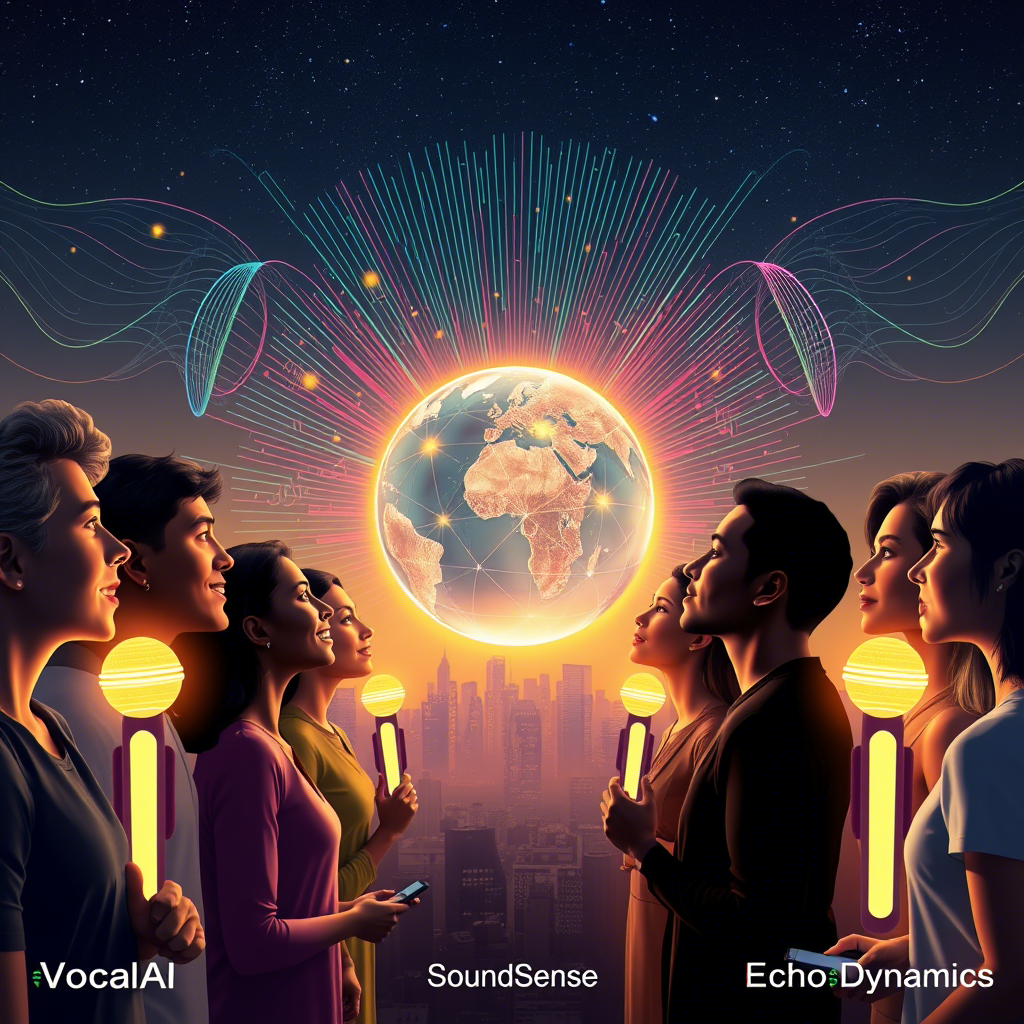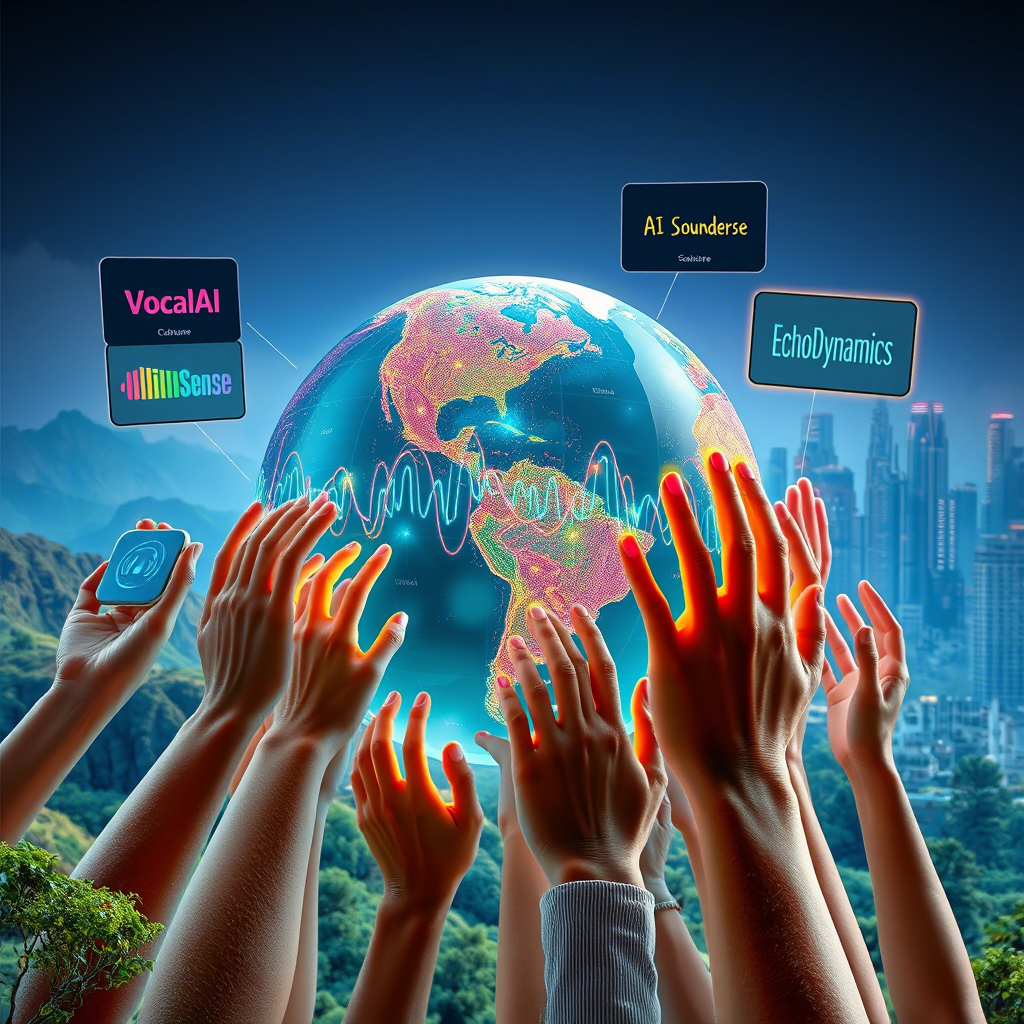In an era where artificial intelligence (AI) is becoming ubiquitous, a new breed of voice-first AI startups is carving out a niche by focusing on the subtleties of human speech. These companies are prioritizing diverse and rich datasets to capture cultural nuances, emotional depth, and linguistic diversity, aiming to create AI systems that converse with unprecedented authenticity and empathy. This emerging trend is poised to redefine human-machine interaction, with applications spanning customer service, mental health support, education, and beyond.
Unlike traditional text-based AI models, which rely heavily on written data, voice-first AI requires a fundamentally different approach. Human speech is a complex tapestry woven from accents, dialects, intonations, and emotional cues—elements that vary widely across cultures, regions, and individual experiences. To address this, startups like VocalAI, SoundSense, and EchoDynamics are investing heavily in curating expansive audio datasets that reflect the full spectrum of human vocal expression. These datasets include not only spoken words but also non-verbal sounds like laughter, sighs, and pauses, which convey meaning and emotion in ways text cannot.

“Our mission is to make AI feel like a friend, not a machine,” said Dr. Aisha Khan, CEO of VocalAI, during a recent industry conference. “To achieve that, we’re training our models on voices from every corner of the globe—urban and rural, young and old, joyful and distressed. It’s about capturing the soul of human communication.” Khan’s sentiment reflects a broader shift in the AI landscape, where conversational authenticity is becoming a competitive differentiator. By prioritizing datasets that span multiple languages, regional speech patterns, and emotional contexts, these startups are addressing a critical gap in AI development: the ability to understand and respond to the subtleties of human interaction.
The importance of cultural nuance cannot be overstated. A greeting that feels warm and welcoming in one culture might come across as overly formal or even cold in another. For example, a cheerful “How’s it going?” might resonate in casual American English but feel out of place in a more reserved cultural context like Japan, where indirectness is valued. Similarly, emotional cues—such as the tone of frustration in a customer’s voice or the excitement of a child sharing a story—require AI to adapt its responses dynamically. Startups are tackling this by incorporating voices from underrepresented communities, including indigenous languages, regional dialects, and marginalized groups, to ensure their models are inclusive and globally relevant.
This focus on diversity is not just about improving user experience; it’s about accessibility and equity. “AI has the potential to democratize access to services like education and healthcare, but only if it can speak to people in their own voice,” said Maria Lopez, a linguistic anthropologist collaborating with SoundSense. “A farmer in rural India or a shopkeeper in West Africa shouldn’t feel alienated by an AI that only understands urban, Western accents.” By building datasets that reflect the world’s linguistic and cultural diversity, these startups are laying the groundwork for AI systems that serve a broader swath of humanity.

However, creating such datasets is a monumental task fraught with technical and ethical challenges. Collecting high-quality audio data requires collaboration with voice actors, community leaders, and cultural experts to ensure authenticity. For instance, EchoDynamics recently partnered with a network of African linguists to record thousands of hours of Swahili, Yoruba, and Amharic speech, capturing not just words but the cadence and emotion unique to each language. “It’s not enough to have a large dataset,” said Raj Patel, CTO of SoundSense. “It has to be representative and respectful of the people whose voices we’re using.”
Ethical concerns around data privacy and consent are also front and center. Voice data is deeply personal, often carrying biometric identifiers that raise security concerns. Startups are addressing this by implementing strict protocols for data collection, ensuring contributors provide informed consent and have control over how their voices are used. Some companies, like VocalAI, are exploring anonymization techniques to protect identities while preserving the richness of the data. “We’re committed to building trust,” Khan emphasized. “Our contributors are partners in this journey, not just data sources.”
The technical demands of voice-first AI are equally daunting. Processing audio data requires significant computational power, as models must analyze pitch, tone, and rhythm in real time. Moreover, training AI to recognize and respond to emotional cues—such as detecting sadness in a user’s voice and adjusting its tone to be more empathetic—requires sophisticated algorithms that blend natural language processing with affective computing. Startups are leveraging advances in machine learning, including transformer models and neural networks optimized for audio, to push the boundaries of what’s possible.

The potential applications of voice-first AI are vast. In customer service, AI-powered virtual assistants could handle complex queries with the warmth and understanding of a human agent. In mental health, voice-based AI could provide companionship and support, detecting signs of distress and offering tailored responses. In education, it could enable personalized tutoring for students in remote areas, adapting to their language and learning style. “We’re seeing a future where voice AI is the primary interface for technology,” said Patel. “Keyboards and screens won’t disappear, but voice will be the most intuitive way to interact.”
The market for voice-first AI is projected to grow exponentially, with analysts estimating it could reach $50 billion by 2030. This growth is fueled by the proliferation of smart devices, from phones and speakers to wearables, all of which demand seamless, hands-free interaction. Established tech giants like Amazon and Google have long dominated the voice assistant space, but startups are gaining ground by focusing on niche, culturally sensitive applications. “Big tech has the scale, but we have the agility to innovate in ways they can’t,” said Elena Martinez, founder of EchoDynamics.
Despite the optimism, challenges remain. Scaling datasets to include every language and dialect is a long-term endeavor, and smaller startups face resource constraints compared to their corporate counterparts. Regulatory hurdles, particularly around data privacy in regions like the European Union, could also slow progress. Moreover, the risk of cultural missteps—such as misinterpreting a dialect or using a tone that offends—requires ongoing vigilance.

Yet, the momentum behind voice-first AI is undeniable. As these startups refine their models, they’re not just enhancing conversational capabilities; they’re redefining how humans and machines connect. By prioritizing diversity, emotion, and cultural sensitivity, they’re building AI that doesn’t just listen—it understands. In a world increasingly reliant on technology, this promise of authentic, empathetic interaction could be the key to making AI truly universal.
Copyrights: Dhaka.ai



